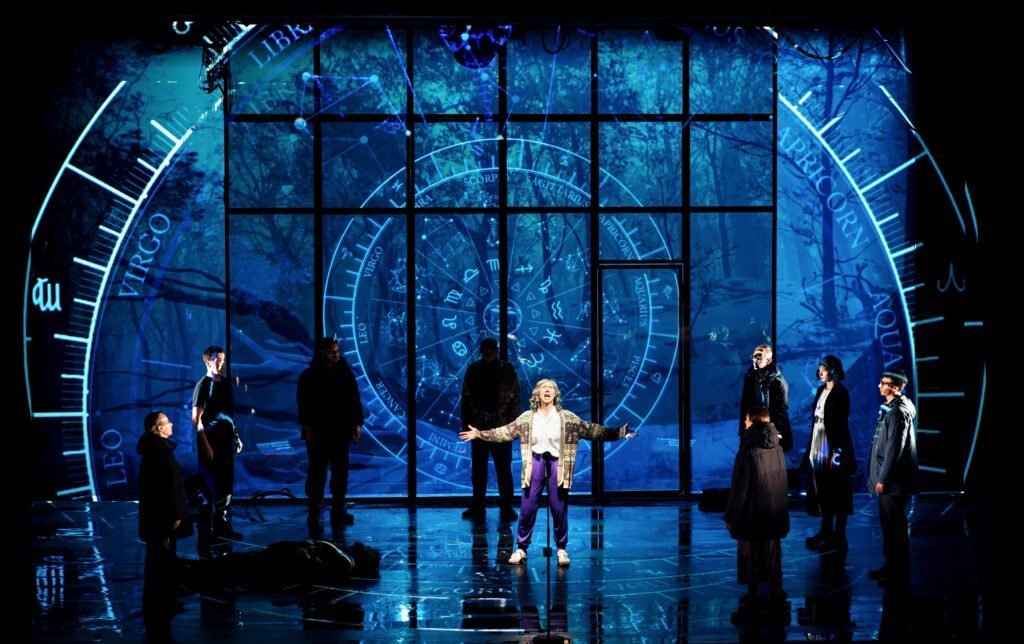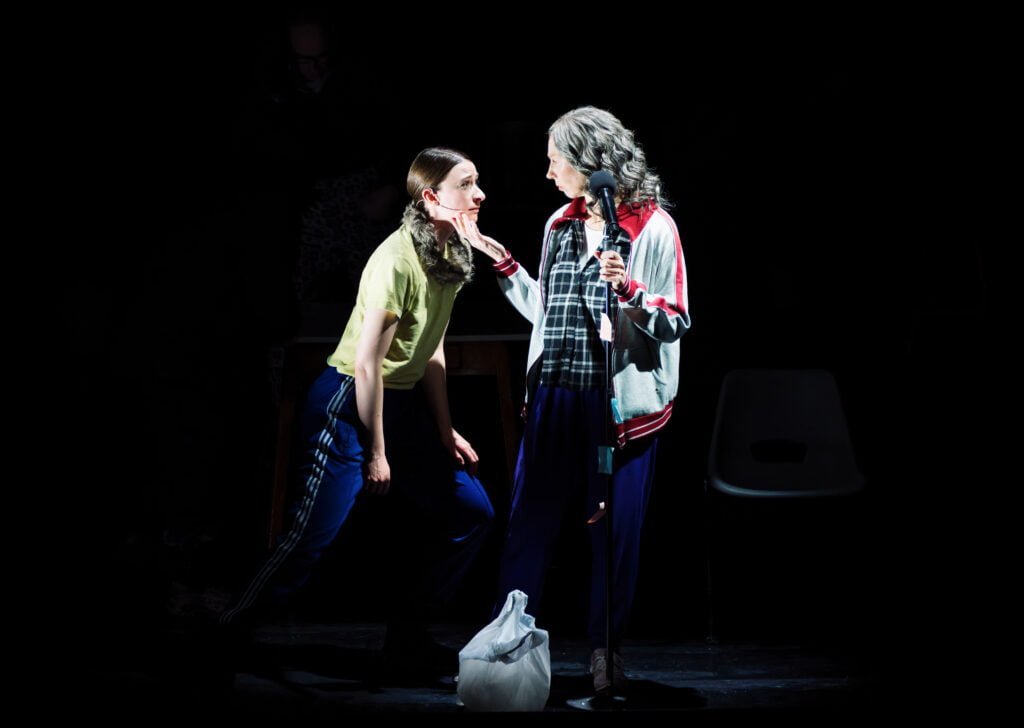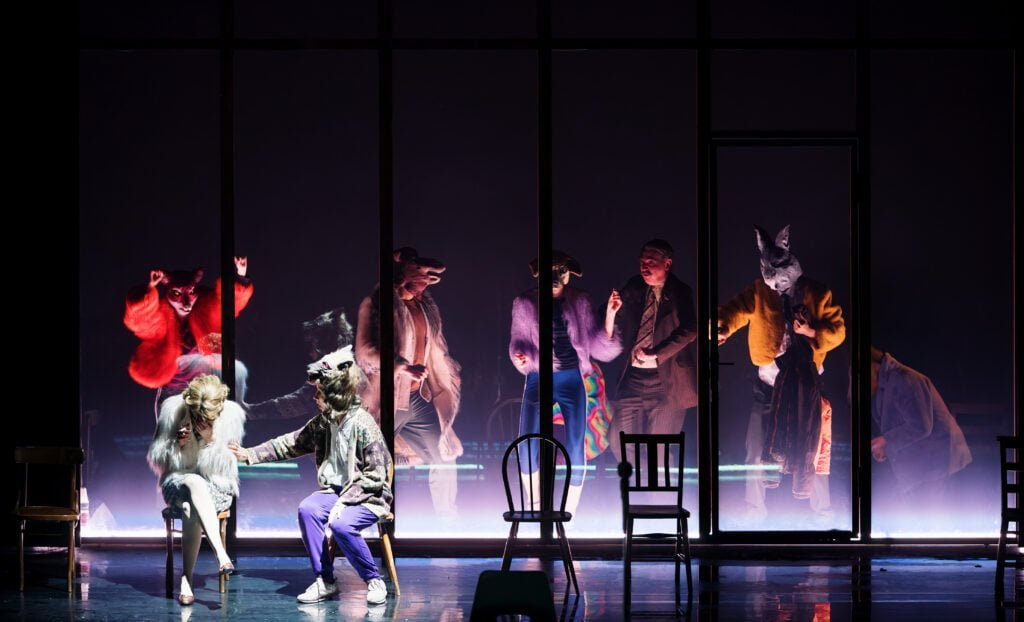It's Complicated!
“Maybe his death was a punishment. Maybe the deer punished him… “
Janina


Janina defies categorisation. Our expectations of a Polish Miss Marple are soon confounded. Janina makes a living as a janitor for the country houses of rich city folk. But she also translates the poetry of Blake, has sex with passing entomologists, smokes dope, knows the lyrics of “House of the Rising Sun”, and began her career as a bridge-building engineer. Though she now puts her faith in astrology rather than science. She also has ‘ailments’, and may or may not talk to visions of her Mother and Grandmother who appear in something like Hell in the furnace room.
But if it is Hell is it more like William Blake’s – a source of imaginative power rather than retributive punishment? Does Janina in fact embody Blake’s refusal to accept the ‘normal’ as reality. His insistence that we cleanse our eyes to see the truth? But can the audience not be trusted to grasp this notion without being periodically blinded by painful bursts of illumination? It is quite clear early now that we are being directly addressed, and not by theatrical artifice.
So is this a contrarian Agatha Christie mystery? Or something more like a Gothic revenge tragedy? Or neither? Does Janina, following Blake, embody an explicit denial of crude and damaging binaries, and look beyond what the unenlightened call Reality. Does her astrology descry a Cosmos that accommodates Devils as well as Angels, where Heaven and Hell marry, and where everything is connected to everything else? Or is she simply deluded? Or is that a vulgar dichotomous assumption?
The resolution we return to after the interval is somewhat weightless and we are left to gaze in wonder at the Universe. Or at least part of it. After all, we’re all part of it and so is everything. The interrelatedness of everything? Including evil? Where does it come from? asks one character. But this key issue is dodged by facetious remarks. That we are all connected is obviously true but surely what matters in practice is what power and knowledge each part has and how it relates to the others. This may be why the production avoids emotional engagement between characters.

There really is only one Character. We can find Janina’s digs at Testosterone Syndrome and Instant Coffee amusing, if hardly biting. And her depiction of pain is moving. But the rest of the very able cast have little chance to stretch out, being mostly restricted to posing to make tableaux for the Narrator. Their occasional in-character engagements with Janina – She of the Great Complexity – are narrowly clichéd. Village Thug, Corrupt Politician, Corrupt Policeman, Hypocritical Priest, Tyrannical Head Teacher, Kindly Medic, Abused Spouse, Eccentric Neighbour, Concerned Nephew. The villains are depicted as physically and personally unpleasant, and thus more deserving of their fate.
So for me Drive… doesn’t really deliver. Too slight a craft to carry such a heavy cargo of metaphysical speculation. (Blake himself could do it in two lines.) Although the performances are compelling the text is not. Basically we are invited to empathise with a Protagonist who kills to avenge crimes against animals. But is not above casting suspicion on the creatures themselves. To frame them and invite punishment? Or invite humans to understand their pain?
How do we make sense of everything?
Perhaps not with astrology.
(But I would be interested to know how contemporary astrologers deal with Black Holes and Dark Matter.“Geminis especially should take extra care to avoid the A30 Honiton by-pass this weekend due to road works and an unseasonal confluence of Dark negativity…)

Production Notes
Drive Your Plow Over the Bones of the Dead
Created by Olga Tokarczuk
Cast
Starring:
Amanda Hadingue
Cesar Sarachu
Johannes Flaschberger
Kathryn Hunter
Sophie Steer
Thomas Arnold
Kiren Kebaili-Dwyer
Tim McMullan
Weronika Maria
Alexander Uzoka
Creatives
Director: Simon McBurney
Designer: Rae Smith
Composer: Richard Skelton
Lighting Designer: Paule Constable
Sound Designer: Christopher Shutt
Video Designer: Dick Straker
Movement Director: Toby Sedgwick
Dramaturg: Laurence Cook, Sian Ejiwunmi-Le Berre
Information
Running Time: Three hours minutes with an interval
Closed at the Barbican on 1st April 2023 but touring
Theatre:
Barbican Theatre
Barbican Centre
Silk Street
London EC2Y 8DS
Box Office:
Barbican Website: www.barbican.org.uk
Tube: Barbican or Moorgate
Touring Dates
Nottingham Playhouse
4 – 8 April
Belgrade Theatre, Coventry
19 – 22 April
The Lowry, Salford
25 – 29 April
Ruhrfestspiele, Recklinghausen
3 – 6 May
Grand Theatre, Luxembourg
11 – 12 May
10th Theatre Olympics, Budapest
16 – 17 May
Wiener Festwochen, Vienna
22 – 26 May
Holland Festival, Amsterdam
1 – 3 June 2023
L’Odeon, Paris
7 – 17 June
Reviewed by Brian Clover
at the Barbican Theatre on 1st April 2023
